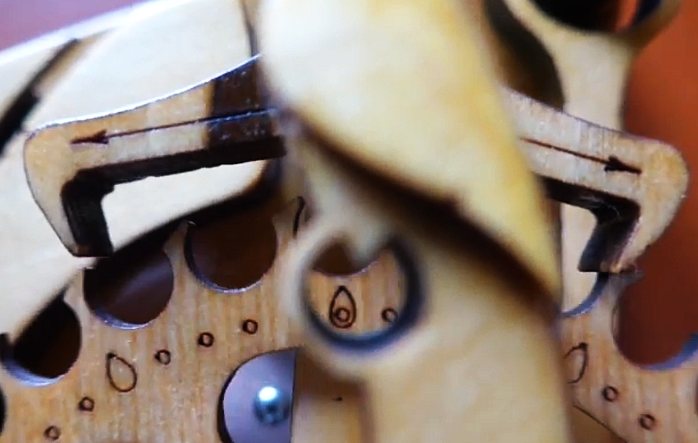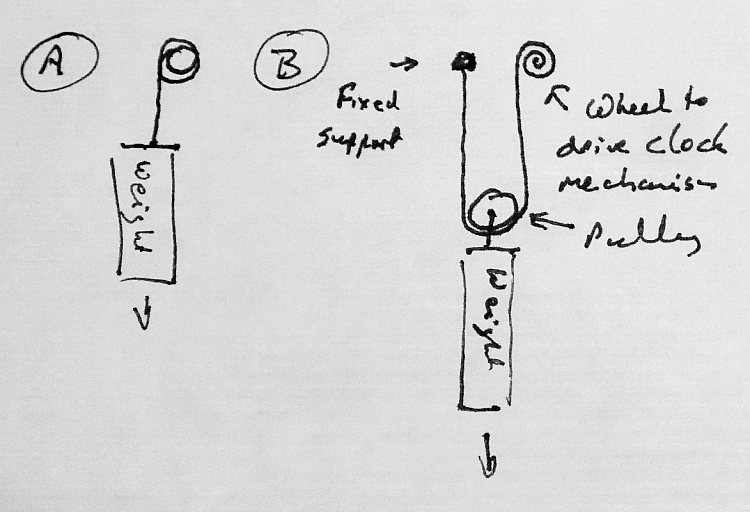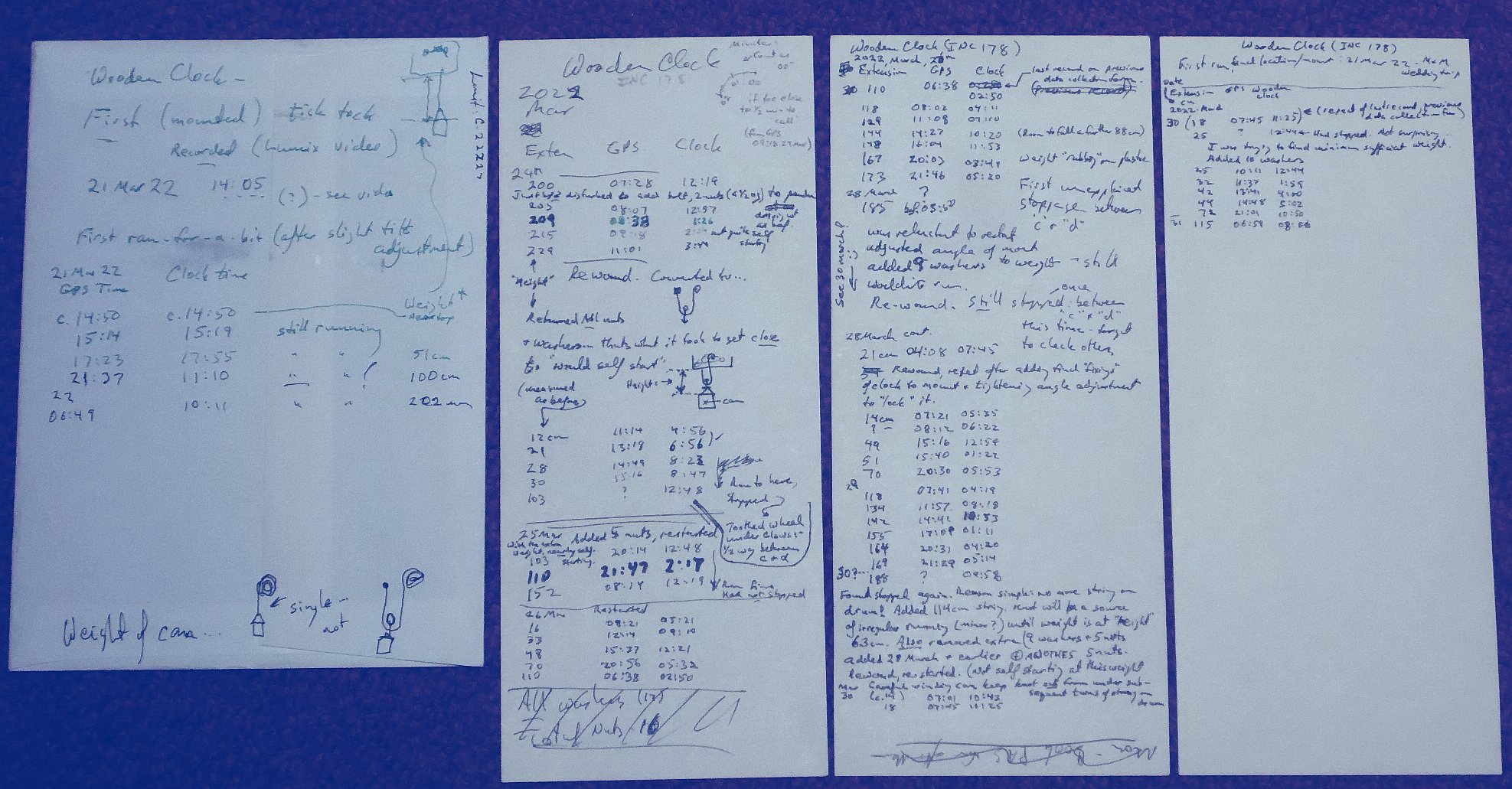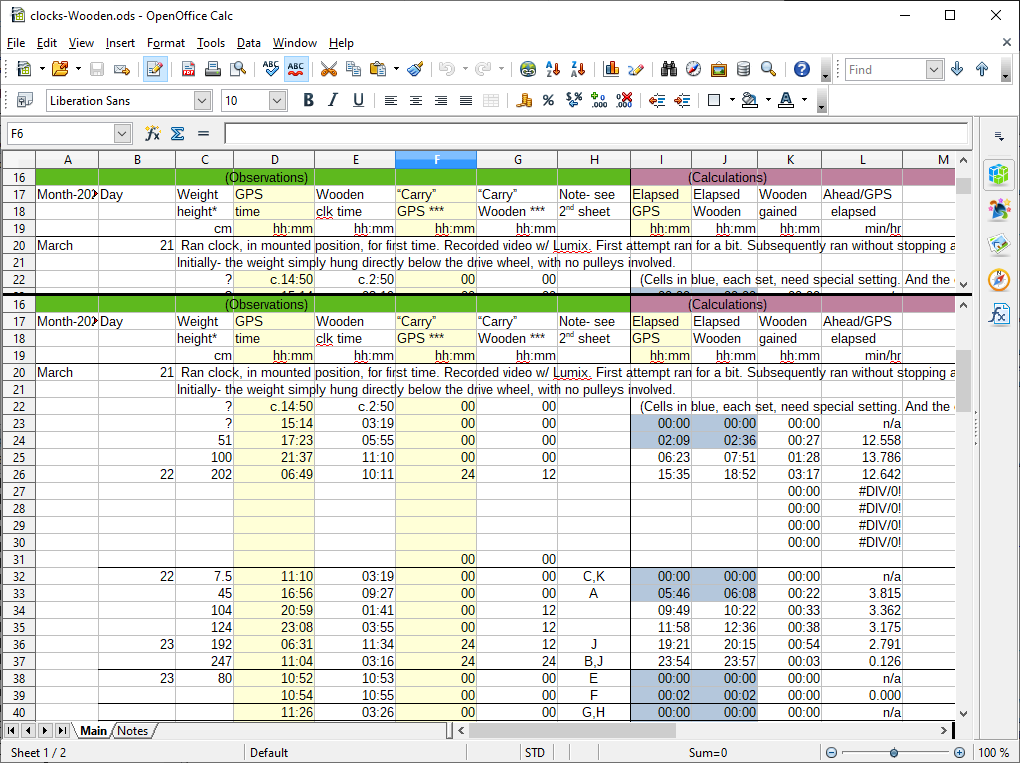
(This page is a "descendant" of a more general page about a clock I made from an excellent kit. (I have nothing to do with Abong, the kit supplier, beyond being a happy customer.)
Do you enjoy "science"? Have you heard about "engineering"? (Engineering is Doing Things with science.)
I made a wooden clock, from a kit.
It was a great kit, and went together well, worked (quite) well right from the start.

But what is "worked quite well?"
Well FOR WHAT?
ANYONE can approach their life "scientifically". And doing so pays dividends. It won't lead to all of your wants being satisfied... but if you know about "being scientific", the skills will be useful to you from time to time.
I can't "finish" this page today, but I can make a start. I will try to come back to this and give you more, but there are other demands on my time today... sorry! I'll be back sooner if people write say, "work on THAT one"! (Contact info at bottom.)
Once the clock was going round and round properly, I started investigating how well it was working.
I didn't care, at first, if it "kept good time"!
Something else was more important...
Did it gain or lose time STEADILY?
So I ran tests... And I measured things.
I wound it up, and started it. I wrote down the time by the most accurate timekeeper I had... my cellphone's GPS time... and I wrote down the time the wooden clock was showing. I didn't waste time setting the wooden clock.
I let it run for a while, and noted the GPS time and the shown-by-wooden-clock times again. (I'll call those "GPS-time" and "wooden-time" from now on.
And I did that again and again.
And set up a spreadsheet. It calculates the gps-time-since-start and wooden-time-since start. And the difference between them, at each reading. And from THOSE numbers, the minutes-per-hour gained or lost.
All the while keeping everything I could THE SAME.
And the minutes-per-hour gained stayed pretty steady. Which was encouraging. If that had been changing, it would suggest that there was a "thing" that I was NOT keeping "the same".
"Science" is creeping in here!
Now... I told you some of the things I recorded, and I said that the minutes-per-hour-gained stayed pretty steady.
I have read about clocks for many years, and I suspected that some other things would matter.
I tried using different weights to drive the clock. As long as I didn't change the weight, the minutes-per-hour-gained stayed pretty steady. But with a different weight, the (pretty steady with that weight) minutes-per-hour-gained was different. So the weight makes a difference! Why?
A heavy weight is good in some ways, bad in others. What weight is "the right" weight? That's a whole OTJER discussion! But decide what weight you are going to use before you take other steps to change the minutes-per-hour-gained!
I said the minutes-per-hour-gained stayed pretty steady.
But it did change depending on how far down the weight had fallen. Why? Can you do something to get rid of that slight variation? (It follows a pattern... it wasn't just "random" errors". (Look up "clock fusee" for a related technology, if you want a hint. Think about how the string suspending the weight winds onto the drum.)
What are the pros and cons of the various things you can do to make the gain-per-hour more steady. There are pros and cons to all of the ones I've thought of. Getting a satisfactory balance between everything is... "Engineering". You like making things? Become an engineer and people will pay you to make things!
Try making one of the spreadsheets. It was harder than I thought it would be. Just keep asking yourself if what you are seeing is "reasonable"... until the answer is always "yes"!)
=== A design choice
There's more than one way to skin a cat, and more than one way to harness the force of gravity to provide the energy to power the mechanism! (I HAVE used "force" properly there... gravity IS "a push or a pull", and thus "a force"... I'm not so sure that I've used "power" and "energy" two IMPORTANT words, that you really should try to master. And "work" is part of all that, too.)
A.N.Y.W.A.Y.... I powered(?) my clock as per "A" below at first, and then changed to "B". ("B" was what Abong had said to do, and provided for in their excellent kit.) Think about the pros and cons of the two options. Also consider them in regard to how big the radius of the drum the string winds onto should be. And the characteristics of the string you use! ALL will make a difference to how well your clock serves you as a timekeeper.
Too many questions? I thought you counted (with PRIDE!) yourself a geek? There's FUN to be had in thinking more deeply than a cow grazing in a meadow... or than 80% of the people around you.

Science uses numbers a lot.
To "understand" what the clock is doing, in any useful detail, we need numbers. And in researching it, there will be many numbers.
Some are observations... at such and such a time (number) the weight had dropped to a new "height" (number), and the clock said the time was (number)

These observations need to be written down... clearly... (Do as I say, not as I do.)
Your "private" science may be a lot of fun, but it won't matter to the world. You have to tell others what you've seen (your observations), show them the numbers you've derived from what you've seen, and then what conclusions that led you too. (E.g., I have concluded from my experiments that if you increase the weight driving the clock, it loses a little more time than it does if everything else is unchanged. You may think that only changing the pendulum can change the clock's speed, but that is only true in a vacuum. (Changing the pendulum is, of course, the main way to speed up or slow down the clock.)
If you want to look at them closely, open the image in a new tab.
You need to write down your observations. That document is called your "data collection form". And, with blushes, here's mine...
Geeks often lean towards science/mathematics in school... and away from Use Of English lessons. You NEED the Use of English. You may have the answer to World Peace, or even to How Memory Works... but if you can't communicate effectively it does no one any good.
From the numbers you directly observe, others can be calculated
Once you have your basic observations, you need to do sums. Hurrah for spreadsheets! Here's the one I used...

You can download it as an .ods... the sort the "plays nicely" with the free, multi-platform, open source Libre Office. (And Open Office). Ask your school, etc, why they are WASTING MONEY paying Microsoft and/or Apple to be in their thrall. (Tell me if it will open nicely in Excel? (I don't have it to try for myself.)
That start with the numbers I mentioned a moment ago. From them, the spreadsheet calculates the elapsed time (since the last time the clock was interrupted, rewound, etc.)... both according to the wooden clock, and according to the clock I was using to test the accuracy of the wooden clock- the GPS time available via my smartphone.
And from THOSE, you can work out how many minutes the wooden clock is gaining/ losing.
Getting the spreadsheet Just Right was trickier than I ever expected it to be. But then I'm no spreadsheet expert.
I haven't been at all interested... yet... in getting the wooden clock to be accurate! That's trivial.... ** IF ** I can get it to operate steadily... always gaining or losing time at the same rate. (Minutes per hour). Until I achieve that, trying to get it to keep accurate time will be a waste of.... time!
If you found this of interest, please mention in forums, give it a Facebook "like", or whatever. If you want more of this stuff: help!? There's not much point in me writing these things, if no one hears about them. Does anyone feel they are of any use? If YOU do- please spread the word!
Search (only) this site...
|
Unlike the clever Google search engine, FreeFind's merely looks for the words you type, so....
* Spell them properly.
* Don't bother with "How do I get rich?" That will merely return pages with "how", "do", "I"....
Disclosure: FreeFind tells me what people have searched for. It doesn't tell me your personal details. (If someone would "spy" on you, wouldn't they also feel free to lie in a "privacy statement"? Not to say I'm not lying... how can you tell?... but to say "What are privacy statements worth?".
Unlike the clever Google search engine, this one merely looks for the words you type, so....
* Spell them properly.
* Don't bother with "How do I get rich?" That will merely return pages with "how", "do", "I"....
Please also note that I have three other sites, and that this search will not include them. They have their own search buttons.
www.arunet.co.uk/tkboyd/index2.htm My site at Arunet.
Search across several of my sites at once with a Google search button.

---
It's both! Flat-Earth-Academy.com is something I started years ago. For a variety of reasons, I can't offer you httpS:// access there. (As you are not asked to input any information, that's moot, but it "worries" search engines.) So I'm moving to my new, all singing, and will do the httpS:// dance site, "WYWTK.com", and Flat-Earth-Academy is gradually acquiring pages there. (Well, HERE, as what you are reading is one of my "wywtk/fea" pages.)
Why "WYWTK"? It comes from "What You Want To Know".
How to email or write this page's editor, Tom Boyd. If you write, please cite page's URL: wywtk.com/ec/sci/astro/clocks3.htm... or at least the last part of that!
![]() Page has been tested for compliance with INDUSTRY (not MS-only) standards, using the free, publicly accessible validator at validator.w3.org. It passes in some important ways, but still needs work to fully meet HTML 5 expectations. (Copy your page's URL to your clipboard before clicking on the icon, so you can easily paste it into the validator when it has loaded.)-->
Page has been tested for compliance with INDUSTRY (not MS-only) standards, using the free, publicly accessible validator at validator.w3.org. It passes in some important ways, but still needs work to fully meet HTML 5 expectations. (Copy your page's URL to your clipboard before clicking on the icon, so you can easily paste it into the validator when it has loaded.)-->
AND it has been tested with...

 Why is there a script or hidden graphic on this page? I have my web-traffic monitored for me by eXTReMe tracker. They offer a free tracker. If you want to try one, check out their site. Neither my webpages nor my programs incorporate spyware, but if the page has Google tools, they also involve scripts. Why do I mention the scripts? Be sure you know all you need to about spyware.
Why is there a script or hidden graphic on this page? I have my web-traffic monitored for me by eXTReMe tracker. They offer a free tracker. If you want to try one, check out their site. Neither my webpages nor my programs incorporate spyware, but if the page has Google tools, they also involve scripts. Why do I mention the scripts? Be sure you know all you need to about spyware.
. . . . . P a g e . . . E n d s . . . . .